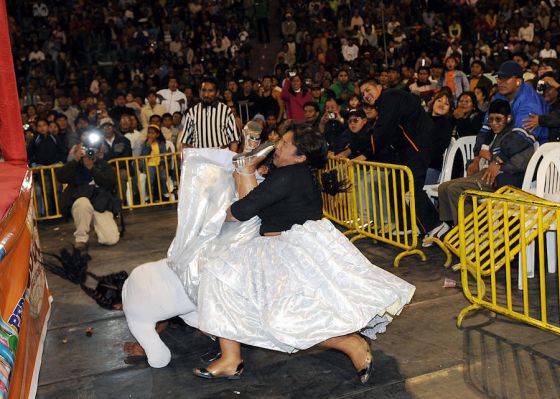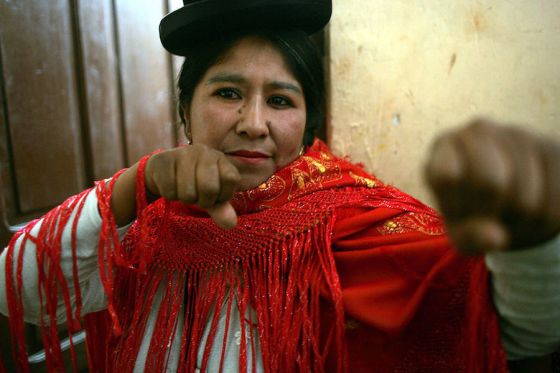
Looking at media in foreign nations, where freedom for women and their occupational decisions are much more limited, it’s become commonplace for local media outlets to openly condemn these women for stepping out of traditional roles. Anywhere from war-torn countries such as Afghanistan and Pakistan that condemn women for not being pious or conventional enough within the religious expectations, to single women in China constantly being reported by the media as ‘leftover women’ and not worthy of marriage. Women all over the globe are being harassed by the media and their own countrymen for failing to live up to unrealistic, and often times patriarchal, expectations.
There are still some strong women facing these unrealistic and archaic traditional values head-on, though. The indigenous women of Bolivia, referred to as ‘cholitas’ and seen in traditional dress and hats, have taken their expected style of dress and manner and turned it on its head—literally— within the wrestling ring. According to Broadly (a subsidiary of Vice), these indigenous women are openly flouting the expectation they are held to to stay in the home, be basically unseen, and resign themselves to a life of poverty. Instead, the ‘cholita’ wrestlers are taking their livelihood into their own hands by being the makers of their own financial success while simultaneously changing the opinions and respect of the audience one body-slam at a time.

As a result of the Bolivian women’s obvious self-respect and higher self-esteem within the ring, they have had the effect of portraying themselves and their people as those who do not intend to remain passive in the face of adversity, but rather, to fight and change conditions for the better. This is significant because as a handful of pebbles thrown into a still pond will cause ripples to reach the far end of the shore, the actions and exposure of these women by the local media is slowly but surely changing opinions of what women can do, for the better.
Conditions are improving for other women around the world that have also chosen to take their perception as seen by society into their own hands. Instead of letting the media define who they were, the single, unmarried women of China took to the streets in a project of transparency and real understanding of just who they were as women. In a video by Broadly, the single women of China became their own brand representative, posting photos listing accomplishments that contribute to who they are as a person, not just their marriage status.
As women gain more confidence, and the necessary training to better themselves financially, politically, and physically that they may have previously been denied by their patriarchal government, conditions will only improve. As women become stronger in all areas in their life, it’s been proven that the communities in which they live will grow stronger as a result. This is why the powerful and far-reaching effects of the media are so important; they make the strides and advances of women aware to the general populace.
Empowerment of women has historically been on the lowest part of the totem pole of priorities (mostly due to the fact that men want to maintain their position on the top of said totem pole), but as we see things change within the feminine circle, we will eventually see change within the masculine, as well. Thus getting us one step closer to global gender equity.
Keep fighting, ladies. And keep contemplating.